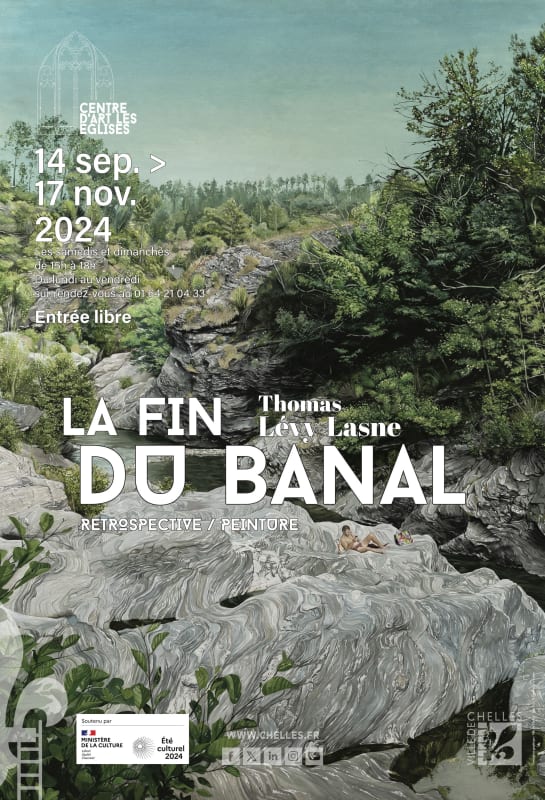For over twenty years, tirelessly, Thomas Lévy-Lasne has been highlighting the flaws of the society we live in. The relevance of the content with the container is no accident as the artist embeds his retrospective in a dual format: the exhibition at the Centre d'art Les Églises de Chelles and the publication of his first 288-page monograph by the École des Beaux-Arts de Paris, both under the common title: "The End of the Ordinary."
From 2004 to 2024, Thomas Lévy-Lasne transitioned from figurative painting of the everyday and the intimate, capturing a certain banality of human constants, to realizing that it is this very banality that slips through the painter's hands with climate drift. From the invariability of our certainties to the fragility of existence, this retrospective unveils a world on the brink.
In his exhibition at Les Églises, the thread of time stretches from one wall to another, from early portraits of loved ones to humans facing screens, from watercolor celebrations to sex and death. While he consistently represents human passions in a recognizable realistic style, it is to better shed a certain form of morality. Things are there as they appear, one might read as a subtitle.
With the acceleration of climate drift, the painter's subjects have also rushed: he moves from "I" to "we," "we" as a species on the brink of extinction. From tourists taking selfies at the entrance of Auschwitz-Birkenau to the remains of the city of Pripyat, so many symptomatic places of evil returned to their banality. Evil is everywhere, as in the disappearing "Bosco" of the Villa Medici or in his "biodomes," artificial spaces reconstructing the idea of nature.
A great avidity is felt in the execution; the artist devours the real to better render and challenge us, to seduce us. Hair by hair, blade by blade, Thomas Lévy-Lasne demonstrates through his realistic treatment, an attention and care for the world in a tragically contradictory injunction. So much time devoted to paintings, destined for longevity, charged with a dizzying doubt about the very possibility of their permanence.


